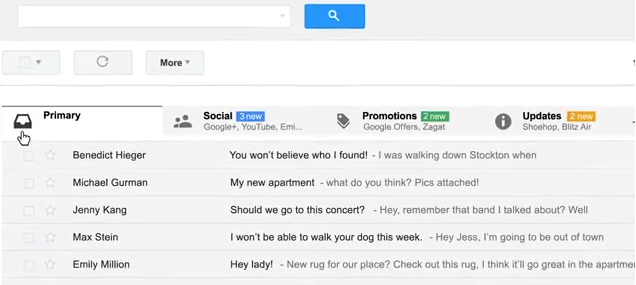ProBlogger: What Advertisers Want: 6 steps to Attract Advertisers to Your Blog |  |
| What Advertisers Want: 6 steps to Attract Advertisers to Your Blog Posted: 30 Jul 2013 08:31 AM PDT This is a guest contribution from Brianne Bauer. How do advertisers determine whether a blog is worth their marketing dollars? Promising blogs start out with must-have elements — interesting content, loyal readership, eye-catching design and regular updates. But what's missing? Here are six ways bloggers can become more attractive to advertisers. Cross-Media IntegrationAdvertisers looks at many metrics when considering advertising on a blog — page views, daily visitors, average time on site, CPM, among others. One of the growing metrics on an advertiser's radar is a blog's social media page. Advertisers not only look at how many followers a blog has but, more importantly, also look at the conversations being held on the blog’s page and social media channels. Can advertisers see themselves being a topic of conversation? Are open-ended questions being asked around a certain product? When advertisers see a blog's large following on Twitter, they see their ROI increasing. Incorporating sponsored social media posts (i.e. sponsored tweets) into your offerings will make a blog's brand more lucrative. Outside of social media, consider other media. During the past five years, I've made more than 50 TV appearances that focused on blog content. As a lifestyle blogger this was a natural fit, and this is an attractive option to heighten exposure for your advertisers. Get Advertisers InvolvedOffer a variety of sponsorship opportunities other than banner ads. Polls, product spotlights and giveaways are great ways to help a blog’s aesthetic and give advertisers options to showcase their brand. Some advertisers want to only participate in giveaways while others may only want to guest post. Guest posts are among the most common ways advertisers get involved with blogs. Guest posts are typically used by brands to build web traffic and to put readers in a purchasing frame of mind. Along with their content, guest posts typically have a byline and a link to the respective blog or website increasing their web stats. Note that it is imperative to remain up front with readers and disclose that a special section is paid for. Get Readers Interacting with AdvertisersThis is arguably one of the most important components of a campaign. If, for example, a blogger reviews a storage product like Backup Genie review and then asks readers to weigh in with their opinions, ask them if they are already using it, plan on buying it or how it would make their lives better. Getting readers to interact with a brand is what advertisers are truly searching. Know Your Blog Rank and How to Improve ItThere are two leading ways advertisers use to measure a site's performance: Google Page Rank and Alexa ranking. These ranking systems allow website owners to benchmark their websites and give advertisers metrics for evaluation. Google Page Rank is an algorithm that ranks a site from 0 to 10 with a major emphasis on quality backlinks. It's no surprise that if the Google bots don't like something, like a broken backlink, a blog's Page Rank score could be in jeopardy. As Page Rank (PR) is slow to update (PR is only updated every 3-4 months), it's difficult to better your PR in a short amount of time. If a blog is stagnating at a PR3 for a while, it could mean there are on-page issues that should be checked using Xenu. Alexa ranking is a free online directory that measures how many daily visitors a site receives, along with other traffic metrics and search analytics. Both are important to advertisers, but Page Rank is measured on your website reputation and Alexa is measured on website traffic. Let Numbers Speak for ThemselvesA media kit gives advertisers a quick glance of what they need to know. It should be updated regularly (and honestly) with the blog's positioning, like this:
Bloggers should be forthcoming if certain stats don't scream success. Share additional facts such as:
Know Your Advertising OptionsWhat better way to help build your brand than to hit the pavement and meet advertisers, share your inspiration for the blog and why you think they would benefit from advertising? But if being in the field isn't your thing, let those who specialize in blog advertising help win new advertisers. Adsense and Amazon Affiliates are among the leaders but research to find a good fit for your blog. It's getting easier than ever to garner interest from new advertisers, but harder to weed out scammers. The longevity of a blog is on based consistent, quality content (and ranking!) but bloggers monetize best when they deliver results to advertisers. Brianne Bauer has garnered publicity for lifestyle brands like Paramount Pictures, and personalities such as Mariel Hemingway and Cheryl Tiegs. With a background in magazine publishing and corporate PR, she is now a freelance publicist and writer based in Minneapolis. Originally at: Blog Tips at ProBlogger What Advertisers Want: 6 steps to Attract Advertisers to Your Blog |
| You are subscribed to email updates from @ProBlogger To stop receiving these emails, you may unsubscribe now. | Email delivery powered by Google |
| Google Inc., 20 West Kinzie, Chicago IL USA 60610 | |









.jpg)